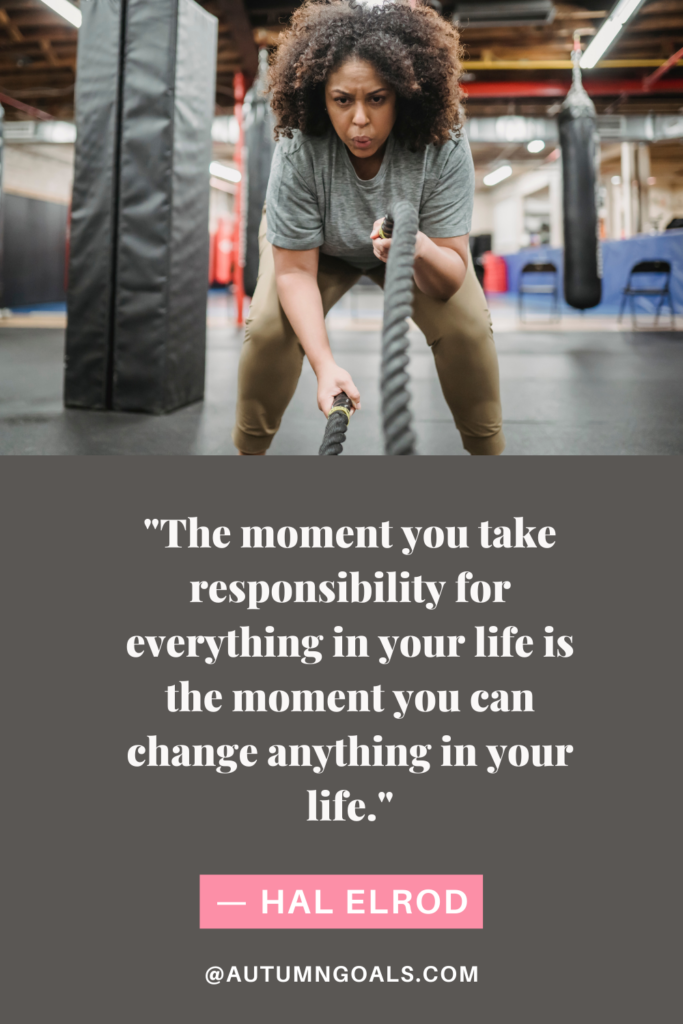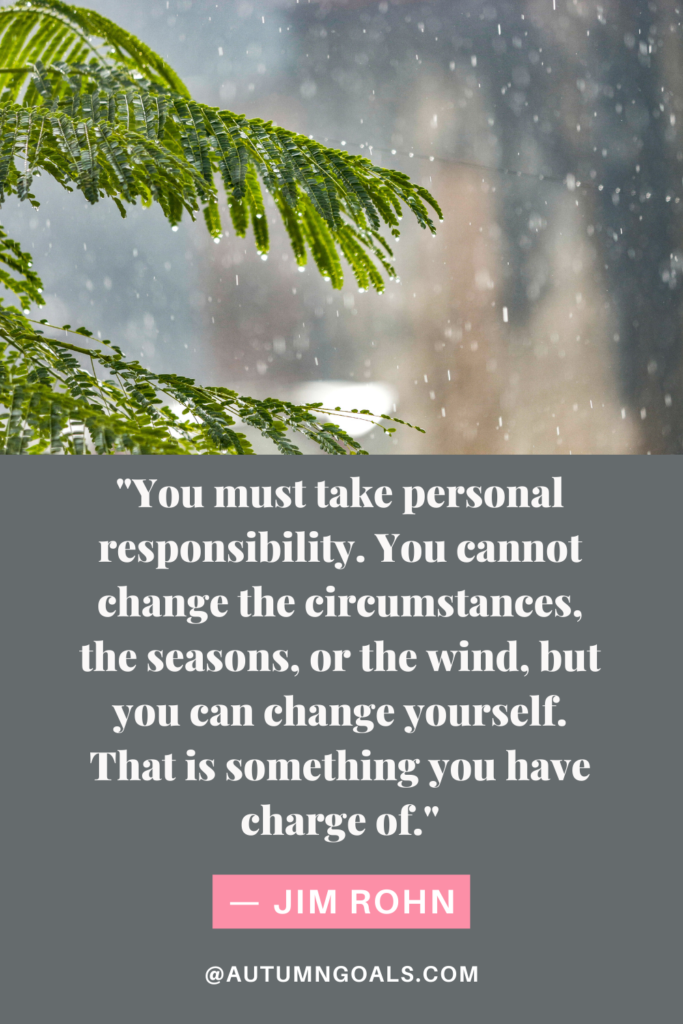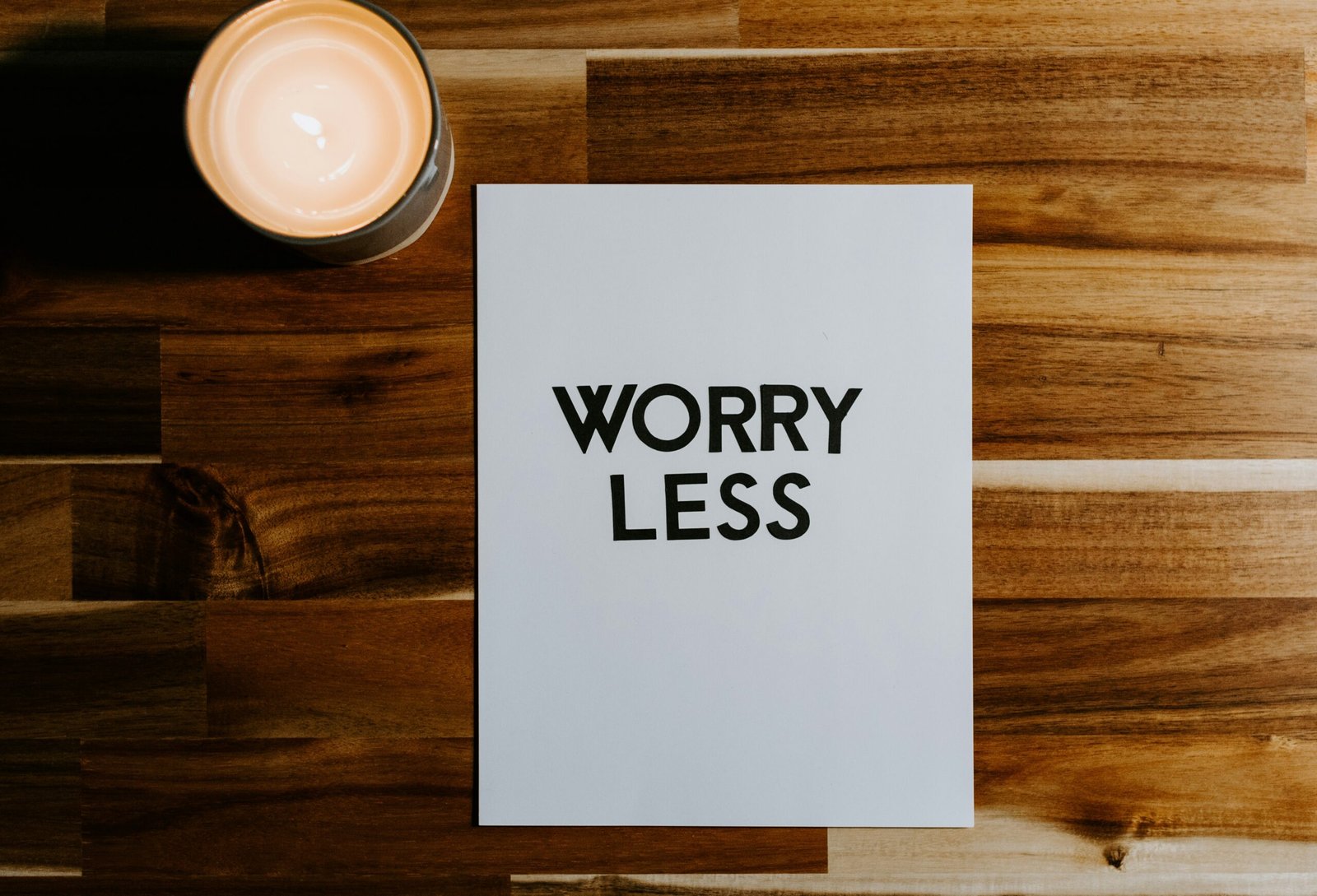
Photo by Patrick Fore on Unsplash
Taking responsibility for our own lives is a crucial step towards personal development and lasting happiness. It’s a journey that involves confronting negative emotions and thoughts, understanding the concepts of justification, rationalization, and blaming, and embracing an internal locus of control. While life might throw challenges our way, how we respond and the actions we choose to take are ultimately within our control. In this comprehensive guide, we will delve into these aspects, explore practical habits for improvement, and draw inspiration from renowned personal development coaches and philosophers.
Negative Emotions: The Barrier to Taking Responsibility
Before we can take full responsibility for our lives, we must first address the negative emotions and thoughts that often control us. These emotions, such as anger, hurt, and negativity, can create a downward spiral if left unchecked. Let’s break down some key negative emotions and how they can hinder our ability to take responsibility:
1. Justification: “I’m entitled to be angry or negative.”
Justification is the act of convincing oneself that it’s perfectly acceptable to harbour negative emotions due to past bad experiences or circumstances. While it’s natural to feel these emotions, allowing them to persist without taking responsibility for our reactions can be detrimental.

For instance, instead of justifying our anger, we can choose to acknowledge it, understand its source, and work towards resolving the underlying issues.
2. Rationalization: “I’m a victim of circumstances.”
Rationalization involves making excuses for our current situation by casting ourselves as victims of circumstances beyond our control. This mindset prevents us from taking responsibility for our actions and life choices.

To break free from rationalization, we must accept that while external factors play a role in our lives, we have the power to make new choices and chart a new course.
3. Blaming: “It’s someone else’s fault.”
Blaming is the act of shifting responsibility onto others or external factors, rather than looking inward. It’s a defence mechanism that keeps us from acknowledging our role in our own lives.
Instead of blaming, we can focus on what we can control and take proactive steps to improve our circumstances.

Internal Locus of Control vs. External Locus of Control
The concepts of internal locus of control and external locus of control play a pivotal role in our choices, actions, and overall outlook on life.
1. External Locus of Control: “Life happens to me.”
Individuals with an external locus of control believe that external forces, such as luck, fate, or other people’s actions, dictate the course of their lives. They often feel helpless and react to situations without feeling in control.
To shift from an external to an internal locus of control, one must start by recognizing that they have the power to influence their own destiny through their choices and actions.

2. Internal Locus of Control: “I shape my own destiny.”
Individuals with an internal locus of control believe that they have the ability to shape their lives through their decisions and actions. They take responsibility for their choices and are more likely to actively work towards their goals.
“The greatest day in your life and mine is when we take total responsibility for our attitudes. That’s the day we truly grow up.”
— John C. Maxwell
By embracing an internal locus of control, we not only gain a sense of agency but also increase our capacity for happiness and fulfilment.
Taking Control: Steps Towards Personal Development
Now that we understand the importance of taking responsibility and embracing an internal locus of control, let’s explore practical steps and habits to actively work towards personal development:
1. Self-Reflection and Awareness
Start by reflecting on your life, choices, and emotional responses. Become aware of moments when you’ve justified, rationalized, or blamed external factors. Awareness is the first step toward change.
2. Acceptance of Responsibility
Acknowledge that you have the power to respond to life’s challenges in a way that aligns with your goals and values. Accept responsibility for your thoughts, emotions, and actions.
3. Goal Setting
Set clear, achievable goals for various aspects of your life, whether it’s your career, relationships, health, or personal growth. Goals provide direction and purpose.
4. Positive Mindset
Cultivate a positive mindset by focusing on gratitude and positive affirmations. This can help you reframe negative thoughts and emotions.
5. Learn from Mistakes
View mistakes as opportunities for growth rather than failures. Analyse what went wrong, take responsibility for your role, and use the experience to make better choices in the future.
6. Seek Support
Surround yourself with a supportive network of friends, family, or a mentor who can provide guidance and encouragement on your journey.
Benefits of Taking Responsibility
Embracing responsibility for your own life yields numerous benefits that contribute to personal development and happiness:
1. Empowerment
Taking responsibility empowers you to effect positive change in your life. You become the captain of your ship, steering it towards your desired destination.
2. Improved Decision-Making
With a clear sense of responsibility, decision-making becomes more intentional and aligned with your goals, leading to better outcomes.
3. Enhanced Relationships
Taking responsibility for your actions and emotions can lead to healthier, more constructive relationships with others. It fosters empathy and understanding.
4. Resilience
Responsibility helps build resilience, allowing you to bounce back from setbacks and face adversity with confidence.
5. Increased Happiness
Ultimately, taking responsibility for your life is a key ingredient in the recipe for happiness. It empowers you to create the life you desire and fosters a sense of fulfilment.
In the journey of life, it’s easy to let negative emotions and external factors dictate our path. However, true personal development and lasting happiness come from taking responsibility for our own lives. By recognizing and addressing negative emotions, understanding the pitfalls of justification, rationalization, and blaming, and embracing an internal locus of control, we become the architects of our destiny.

So, let us rise every time we fall, taking control of our lives, making informed choices, and actively working towards a brighter, happier future. Remember, you are the master of your fate, and the journey towards personal development and happiness begins with taking responsibility for your own life.
RELATED POSTS
View all



